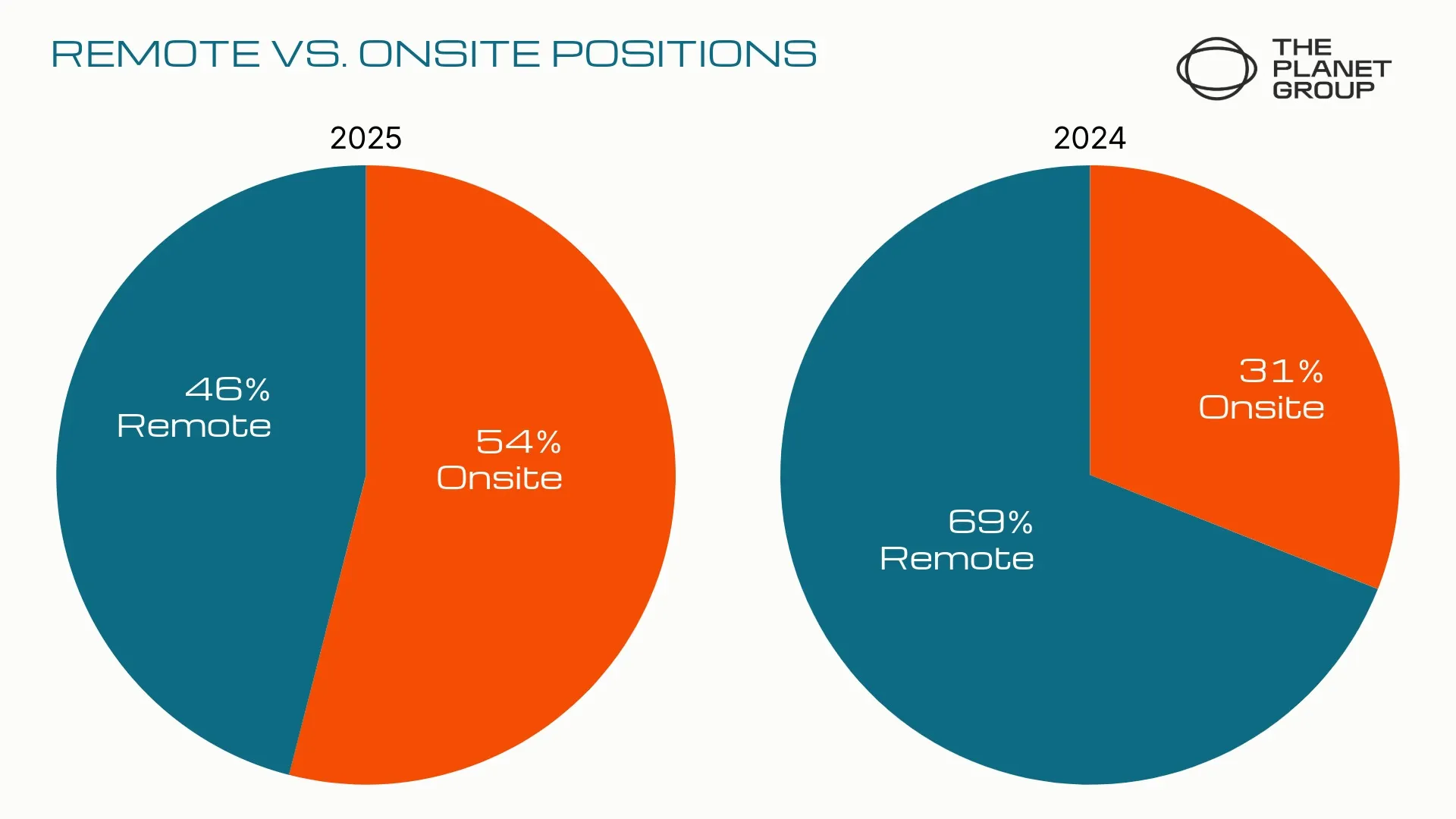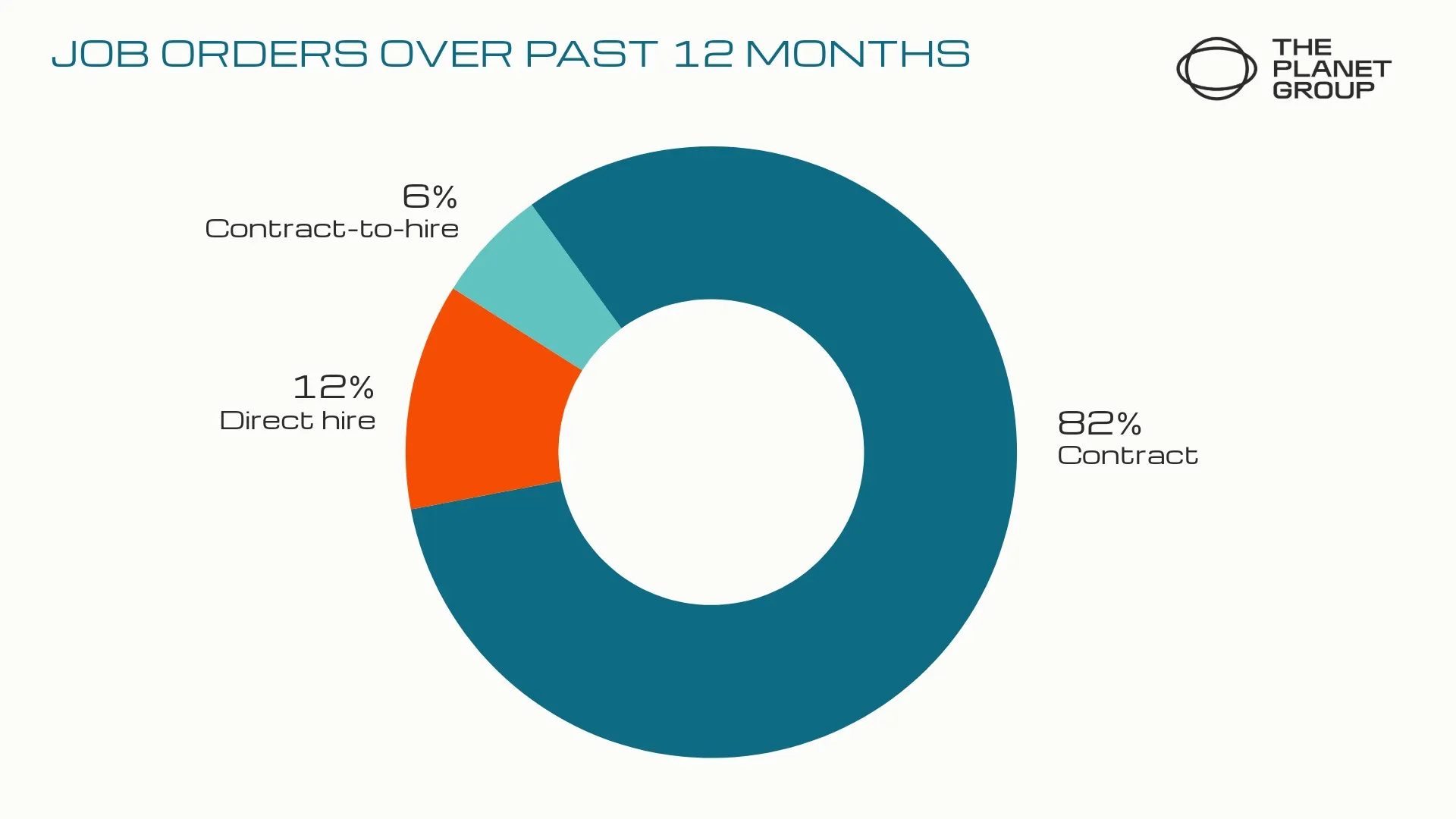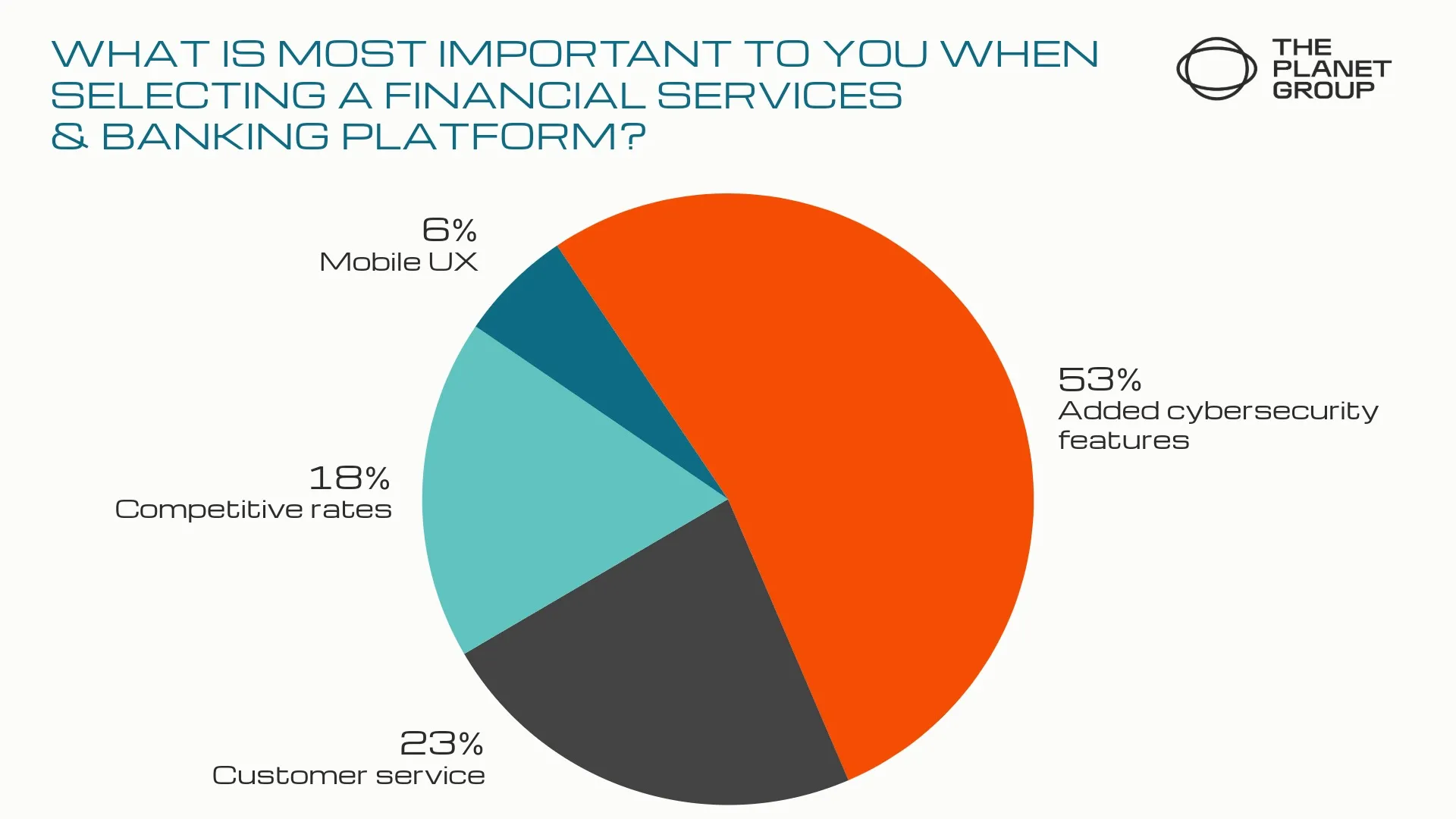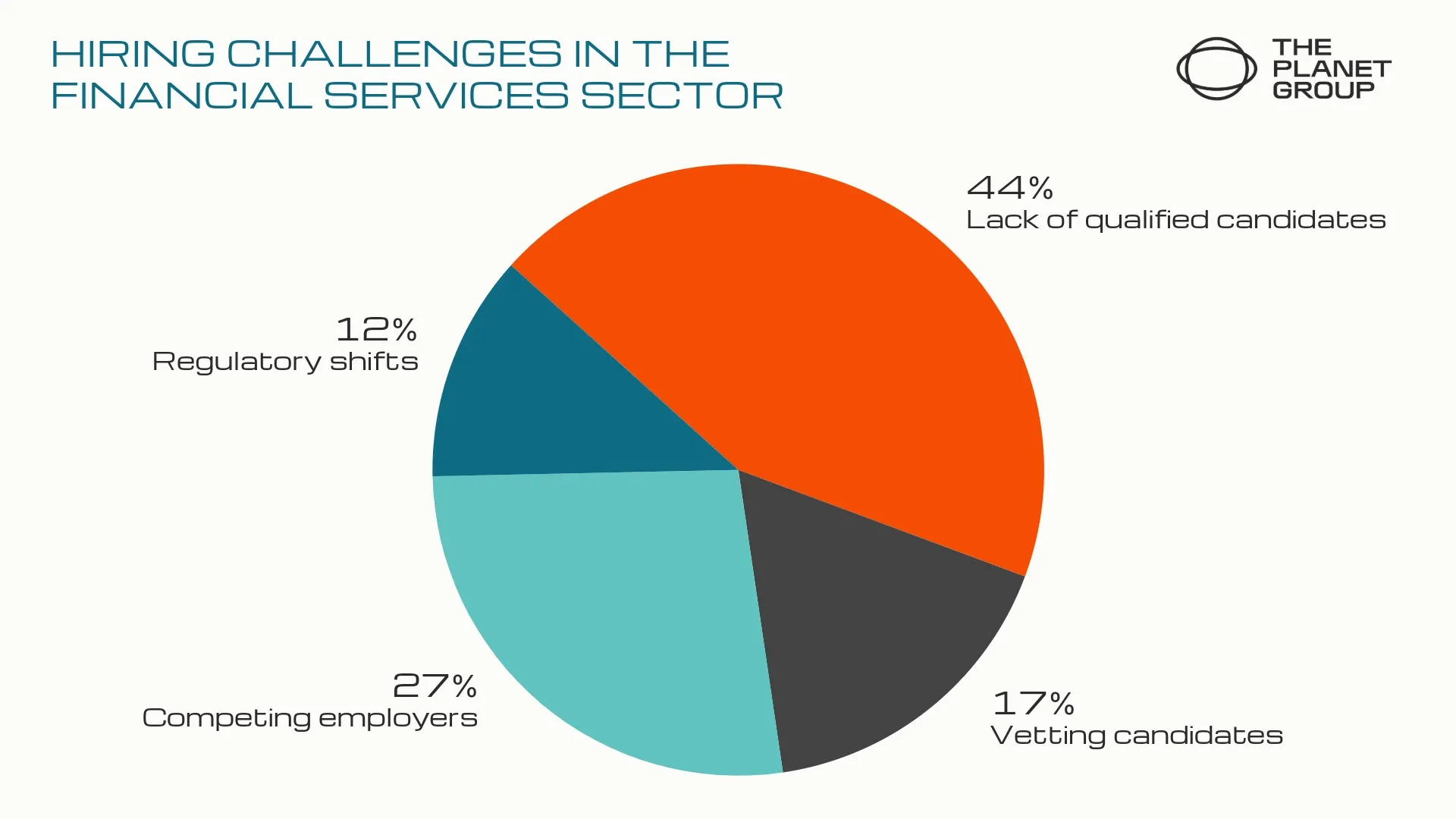The financial services and banking industry is undergoing rapid transformation. Long a cornerstone of the global economy, it's now being redefined by accelerating innovation—from how we invest and lend, to how we pay, save, and build trust. The rise of fintech and the expansion of digital services are pushing legacy institutions to rethink strategy, prioritize user experience, and compete for a new generation of talent and customers.
This report explores the financial job trends, key roles, and challenges shaping today’s financial services workforce—and how high-performance organizations are positioning themselves for what’s next.
MARKET OVERVIEW: GROWTH DRIVERS & TECH DISRUPTION IN THE FINANCIAL SERVICES INDUSTRY
The global financial services market is projected to hit $47 billion by 2029, growing at a CAGR of 7.1%. While macroeconomic volatility has slightly adjusted growth forecasts, the push toward digital transformation remains strong.
Contributing drivers include:
- Adoption of AI and machine learning
- Continued shift to digital and mobile banking
- Expansion of blockchain and decentralized finance
- Rising demand for lending, investment, and home ownership globally

Fintech is no longer a disruptor—it’s a core function. Peer-to-peer platforms, automated lending, and digital wallets have become standard, integrated offerings across the sector. This shift has not only reshaped how financial services are delivered—but also the types of financial jobs that are in high demand.
Our top financial services and banking jobs reflect increased digital transformation:
- Software Engineer
- Application Developer
- Risk Analyst
- Data analyst / scientist
- Security Engineer
- Event and Conference Coordinator
- Financial Analyst / Consultant
- Project Manager
- Accountant
- Content Specialist
Remote vs Onsite Year-Over-Year
Like other industries, our internal data shows that 2025 saw a massive increase in onsite roles within the financial services sector year-over-year, despite the industry being more partial to remote-work options overall.
In 2025, 54% of the open roles we've seen have been for onsite positions, and 46% have been remote. That's a 23% shift year-over-year.

EMERGING AI TRENDS DRIVING GROWTH IN FINANCIAL SERVICES
A significant portion of the change in financial services and banking jobs has been –and will continue to be—driven by advancements in artificial intelligence and machine learning trained on vast amounts of data. In fact, 2024 saw an 11% year-over-year job growth, in part due to these emerging trends. Areas of impact include:
Cybersecurity: The centrality and sensitivity of banking make cybersecurity an absolute imperative. Network monitoring, data breach prevention, and incident response can all be strengthened with AI solutions. Human discernment remains essential to ensure proper implementation and response when breaches arise.

Fraud Prevention: AI, paired with advanced analytics, is transforming how institutions detect and prevent fraud. Machine learning models analyze vast volumes of transaction data in real time—spotting anomalies, flagging suspicious behavior, and adapting to new patterns faster than manual systems ever could. As fraudsters become more sophisticated, AI offers a scalable, proactive solution that strengthens both operational resilience and customer trust.
Risk Assessment and Compliance: Regulatory compliance remains a top priority for financial leaders. AI tools help firms stay ahead by continuously monitoring internal controls, flagging discrepancies, and automating compliance checks across systems. When deployed strategically, these solutions reduce risk exposure, streamline reporting, and ensure adherence to evolving standards. Just as important, they build confidence—internally with leadership and externally with regulators, partners, and clients alike.
A Breakdown of Our Job Orders the Past 12 Months
- 82% Contract
- 12% Direct Hire
- 6% Contract-to-Hire

Digital Experience as a Differentiator
Competition is no longer about products alone—it’s about experience. The rise of fintech has pushed traditional institutions to elevate digital strategies, focusing on customer experience as the key driver of long-term loyalty. Within this major financial job trend, we see the following key points:
Mobile-First is a Must: A 2024 survey found that 55% of Americans rely on mobile apps as their primary way to bank. That number jumps to 66% for Gen Z—one of the most sought-after demographics in the sector. If your app doesn’t deliver a seamless, intuitive experience, your customers will find one that does.

Personalized Offerings and Content: Users expect banks to anticipate their needs—whether saving for a home, building credit, or managing student loans. AI-driven insights can deliver tailored product recommendations, cashback rewards, or loan options in real time.
Trust Through Design: Security isn’t just about firewalls and encryption—it’s also about perception. Fast load times, clean design, and intuitive flows reassure customers their information is safe. A seamless experience builds confidence in your systems and your brand.
Financial Literacy as Loyalty: Gen Z leads the way in mobile banking adoption, yet financial literacy remains low. Embedding microlearning tools—like budgeting dashboards, short educational videos, or wellness check-ins—helps close that gap, positioning firms as trusted partners in customers’ financial journeys.
Emotional Storytelling: A savings account isn’t just numbers—it’s a first apartment, a college fund, or retirement security. By weaving storytelling into digital experiences—onboarding animations, milestone celebrations, or personalized journeys—financial firms can deepen emotional connections and long-term loyalty.

TALENT PRESSURES AND FINANCIAL JOB TRENDS IN AN EVOLVING FINANCIAL ENVIRONMENT
Despite significant opportunities for growth in areas like AI, digital services, and marketing, the financial services sector faces real challenges that complicate both recruitment and retention. The expansion of technology and the heightened focus on customer experience have accelerated demand for digital and technical expertise. But this growth has also created deficits in more traditional financial services skills like financial analysis, planning, and accounting, as research suggests a significant shortage of advisors and managers in the coming decades. As a result, employers are competing fiercely for talent across multiple fronts, making the market increasingly difficult to navigate.
Adding to the pressure is the sector’s regulatory complexity. Financial institutions must operate under a dense and ever-changing web of federal, state, and global requirements spanning banking, securities, consumer protection and more. This not only drives demand for compliance experts but also contributes to higher levels of stress and burnout across the workforce. Turnover in banking jobs and other financial services already outpaces many other industries, and a growing number of professionals are questioning their long-term future in the field—further straining the talent pipeline at a time when demand has never been higher.

LOOKING AHEAD TO THE FUTURE OF THE FINANCIAL SERVICES INDUSTRY
As technology accelerates and skill demands evolve, financial services organizations are being pushed to rethink how they attract, develop, and deploy talent, making it crucial to understand the latest financial job trends.
Broaden Hiring Scope and Pipelines: The integration of AI and digital tools, combined with shifting consumer behavior, is driving demand for new skill sets. Expanding recruitment strategies and prioritizing tech talent will be key to staying competitive and compliant. Retaining financial analysts and advisors will also be critical to navigate the coming talent shortage.
Embrace Reskilling: Research suggests that nearly half of employees in the financial services sector will need to be reskilled and redeployed within their organization by 2030. Rather than resist this change, employers can begin to prepare to meet this challenge by promoting a culture of internal mobility and continuous learning. Doing so can also ward off burnout and turnover.

Stay Flexible with Contract Solutions: Contractors offer flexibility, a key asset in an evolving, highly competitive industry. Financial services firms may rely more extensively on staff augmentation solutions for their business, especially as the scope of roles and skills needed to thrive in the sector expands.
The path forward demands agility, adaptability, and a people-first mindset. Firms that invest in culture as much as capability won’t just close the skills gap. They’ll gain a competitive edge, find new solutions, and set the pace for the future of financial services.
If you’re in need of a financial services staffing firm to help facilitate your hiring processes, let’s schedule a call to discuss our capabilities.
ABOUT THE PLANET GROUP
The Planet Group is a global professional services firm delivering strategic staffing and advisory solutions. We operate at the intersection of talent and transformation – connecting the right people with the right opportunities in the areas of technology, engineering, accounting & finance, digital marketing, and manufacturing.
Named one of the fastest-growing private companies in the US, The Planet Group operates with a global reach and a performance-first mindset. We partner with clients to move fast, stay agile, and drive measurable results – connecting the right talent with the right opportunity to fuel transformation and growth.
We’re more than service providers, we’re catalysts. We make the stars align.
Frequently asked questions
Q: What certifications and credentials are most valuable in financial services today?
A: Professionals in financial services often pursue credentials such as CFA (Chartered Financial Analyst), FRM (Financial Risk Manager), CPA (Certified Public Accountant), CAMS (Certified Anti-Money Laundering Specialist), and CIPM (Certificate in Investment Performance Measurement). These credentials can help specialists in investment, audit, risk, compliance, and operations stand out.
Q: What nontechnical (“soft”) skills are increasingly demanded in finance roles?
A: Beyond technical fluency, employers look for skills like data literacy and analytics, communication and storytelling, critical thinking, adaptability to fintech and digital transformation, interpersonal collaboration across functions, and regulatory change management. As finance becomes more integrated with technology, the ability to bridge finance, operations, and IT is especially valuable.
Q: How can firms in financial services stay competitive in recruiting and retaining talent amid industry disruption?
A: Strategies may include offering upskilling and certification sponsorships, providing rotational programs and cross-functional exposure, embracing hybrid/remote work models, creating strong employer branding in fintech/digital transformation, collaborating with university finance and fintech programs, and leveraging specialist recruiting or staffing partners like The Planet Group to find niche finance talent.
Internal link idea: You could include a link to your Global Payroll Optimization case study or a blog post on talent trends in financial operations, to tie in how back-office/finance operations are evolving in tandem with industry talent shifts.

.svg)



